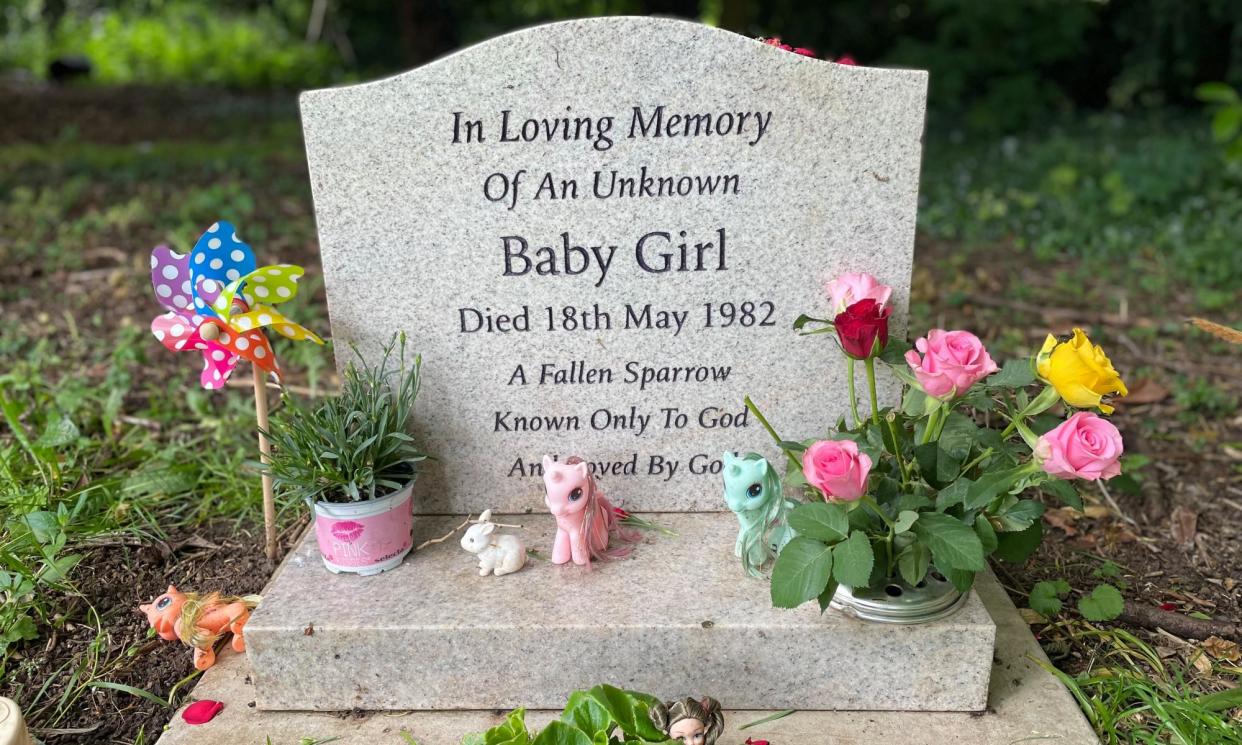How couple kept pledge to baby found dead in 1982 ‘she wouldn’t be forgotten’

It was 9.30 on a cold November morning in 1982 when George and Margaret Burgon laid to rest an unknown baby girl who had been found dead in a carrier bag near Northampton train station.
The couple, along with three police officers, an undertaker and two journalists, were the only people present at the service led by George, who was then a vicar at St Mary’s church in Northampton.
Ever since, Margaret has been travelling to the baby girl’s grave, tucked away in an isolated corner of a cemetery, to lay flowers four or five times a year.
She said: “I promised her that she wouldn’t be forgotten. And I’ve kept that. It’s really, really sad. I can remember looking at her tiny coffin.”
Last week, police arrested a 57-year-old woman in Northampton on suspicion of the baby’s murder, more than 40 years after her death, after a cold case review.
The baby’s discovery in 1982 created headlines nationwide and there was a big police investigation, but nobody was prosecuted and the case was closed in 1993. It is understood the infant was found strangled and wrapped in cloth.
Margaret Burgon, who has three daughters, said she was stunned when two police officers turned up at her door last week with news of the arrest. “When they sat there and told us, I just went ‘Oh my God.’ I almost burst into tears. I was so amazed that after 42 years, they could make an arrest.
“Then I was getting so many messages from people saying: ‘Margaret, is this the baby you take flowers for? Is this your baby?’ I’ve been asked on more than one occasion, why do you still do that? And I said, because I made her a promise. But, oh my word, we just never expected this [the news of an arrest].”
Burgon had last visited the baby’s grave at Northampton cemetery on 16 May; she always visits on or around the recorded date of death of 18 May.
The grave sits apart from those of other children, in an isolated spot, as there was no family to pay for a plot. It is adorned with flowers, a windmill and toys left by local children.
After Burgon’s most recent visit, she had posted on social media to say she did not suppose “we’ll ever know who this little one is, or indeed, when her birthday actually is. My friend and I visited her today, pouring with rain, but that didn’t deter us. God bless you sweetheart.”
In 2019, the Burgons arranged to have a headstone made, donated by a local stonemason, with Margaret fearing the baby could become forgotten without a visible grave.
Before that only a flower vase had marked the baby girl’s resting spot, and the Burgons had to enlist the help of a councillor to prevent the area from becoming overgrown with trees and bushes as it is so set back from the other graves.
The headstone refers to the girl as “a fallen sparrow”, an allusion to a biblical passage used by George Burgon in the funeral service he held for her decades before. “A fallen sparrow known only to God and loved by God,” it reads.
Burgon said he was occasionally asked to conduct funerals for people who died with no family, but this was the most difficult service he could recall leading. “It affected people in all sorts of ways. I remember the whole community was very shocked by what happened,” he said. “But it’s a wonderful example of common humanity – the way people responded at the time, and still do. She is our child as a society, as a humanity.
“But what we’ve done, this is only the preface to the story. The real story has got to come out yet.”
Margaret Burgon said she hoped that now an arrest had been made they might be able to find out what happened to the child and meet her mother. “If I was ever able to meet her, I’d probably just give the girl a hug,” she said.

 Yahoo News
Yahoo News 
